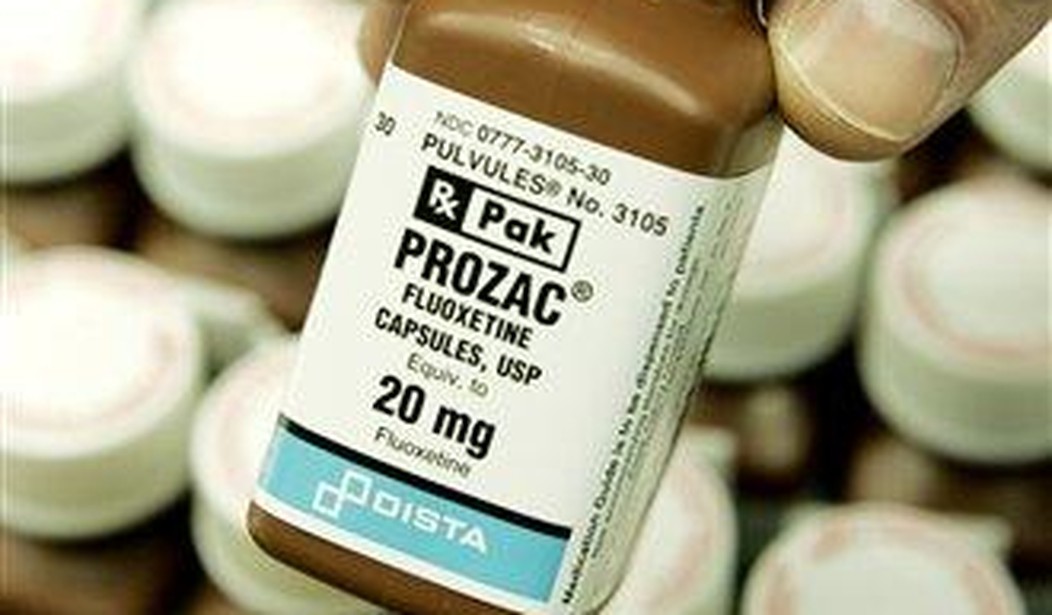With every mass shooting comes a slew of potential culprits, variously offered by pundits depending on their perspectives on gun control: the guns themselves, violent video games, mental health, social decay, etc.
The debate becomes stale and repetitive very quickly as all retreat to their ideological corners. The facts of any specific case become a mere footnote.
The one sacred cow culprit that is almost never addressed in the corporate state media – funded heavily as it is by the pharmaceutical industry – is psychotropic drugs like selective serotonin reuptake inhibitors (SSRIs), commonly referred to in everyday parlance as simply “antidepressants.”
(Credit to Matt Walsh as the inspiration for this article; I have followed the seemingly increasingly plausible link between SSRIs and mass shootings for years now, but his recent video on the topic reignited interest on my part in the topic.)
The most recent mass shooter in Maine was reportedly confined to a mental healthcare facility earlier this year as a result of his unstable behavior – a solid move, it would seem, given what he did earlier this week. Unfortunately, they ultimately released him into the wild, as it were, after only two weeks.
Via Newsweek:
Within reports about the incident were claims regarding Card’s mental health. The Associated Press reported that a police bulletin, circulated to law enforcement officials, stated Card had been committed to a mental health facility for two weeks in the summer of 2023. It reportedly said he had been “hearing voices” and made threats “shoot up” a military base in Saco, Maine.
The inadvisability of releasing an individual with firearms expertise who threatened to “shoot up” a military base he is likely very familiar with aside, the most pertinent question is: what drugs was he put on during his “treatment,” to the extent that’s what occurred in his two-week stay, and what drugs might he still have been on?
As I reported yesterday at PJ Media, at least 13.2% of the adult American population (as of 2018; it’s probably increased since) is taking antidepressants at any given time. As anyone who has been prescribed them can attest, doctors routinely hand out SSRI prescriptions like candy to patients – often with minimal clinical investigation or follow-up – as a first-resort treatment for mental health conditions. It’s very possible, therefore, that Card was taking them at the time of the shooting.
Related: Research: SSRI Antidepressants Don’t Work As Advertised in Humans and Make Shrimp Suicidal
In addition to the evidence covered in my article yesterday that they don’t actually work to treat depression because the purported causal mechanism of depression – serotonin deficiency – is not likely the actual providence of the condition in the first place, these drugs also potentially induce increased suicidal behavior in those who take them.
The FDA itself, lauded as the “gold standard” regulatory agency by the Public Health™ authorities, issued a “black box” warning in 2004 “to require a boxed warning on antidepressants regarding the risk of suicidality in young adults.”
And here’s how the label for Prozac, a hugely popular SSRI in the U.S. market, reads:
All patients being treated with antidepressants for any indication should be monitored appropriately and observed closely for clinical worsening, suicidality, and unusual changes in behavior, especially during the initial few months of a course of drug therapy, or at times of dose changes, either increases or decreases.
I myself was prescribed an SSRI in 2009 for depression – which in retrospect I understand had other causes besides a neurochemical imbalance – and I can attest through personal experience that the drug induced not only suicidal thoughts in me but fantasies of interpersonal violence in others, perhaps as an outsourcing of the pain that I felt and the total lack of relief offered by the drug dispensed to me after a ten-minute consultation with an indifferent “counselor.” I discontinued my use shortly thereafter.

